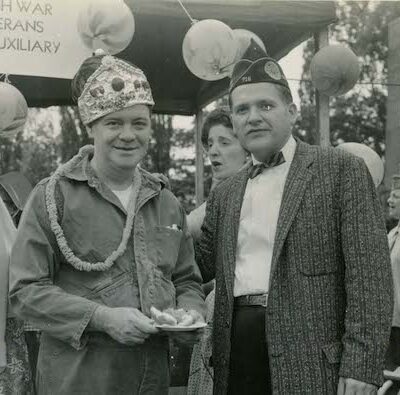
The Jewish War Veterans of America was founded in 1896 by Jewish veterans of the U.S. Civil War and expanded greatly after World War I to accommodate the large number of Jewish solders returning from that conflict. Throughout the 20th century, the national organization included at least 12 posts throughout Western Pennsylvania.
Jewish War Veterans Pittsburgh Post No. 49 obtained a charter from the national office in 1925 and was legally incorporated in Pennsylvania in 1933 with Harry Schaffer, William Unger, Joseph B. Cohen, Harry Seiner, Louis Goodman, Bennie R. Neiman, Samuel Tanur, Israel Rogal, and Fred Katz listed as charter members. Within the city of Pittsburgh and its immediate suburbs, the Pittsburgh Post No. 49 was followed by the short-lived Pittsburgh Post No. 117 in 1935 and short lived East End Post No. 137 in 1936, the Bellefield Post No. 299 in 1945, the East Boros Post No. 718 in 1957, and the Sanford J. Baer/South Hills Post No. 785 by 1967. Small-town posts throughout Western Pennsylvania include Johnstown Post No. 118, New Castle Post No. 136, Allen H. Chamovitz/Beaver County Post No. 147, Jacob Greenfield/McKeesport Post No. 181, Carnick-Cohen/Oil City Post No. 366, and Homestead Post No. 412. In the years after World War II when membership in the organization peaked, the Jewish War Veterans formed the Allegheny County Council, as well as several post-level ladies auxiliaries.
One of the earliest actions of the Jewish War Veterans in this region was actively and publically opposing the rise of the Nazi Party in Germany and similar ideological movements domestically. Pittsburgh Post No. 49 protested the granting of a state charter to the Silver Shirts in 1934 and drafted a petition to boycott the 1936 Olympics in Berlin.
The many Jewish War Veterans posts and ladies auxiliaries throughout Western Pennsylvania primarily focused on the needs of local veterans, including fundraising for veteran aid, visiting area Veterans Administration hospitals, and attending to the graves of veterans in area cemeteries. In later years, local posts advocated for memorialization projects, such as the Southwestern Pennsylvania World War II Memorial in Pittsburgh.